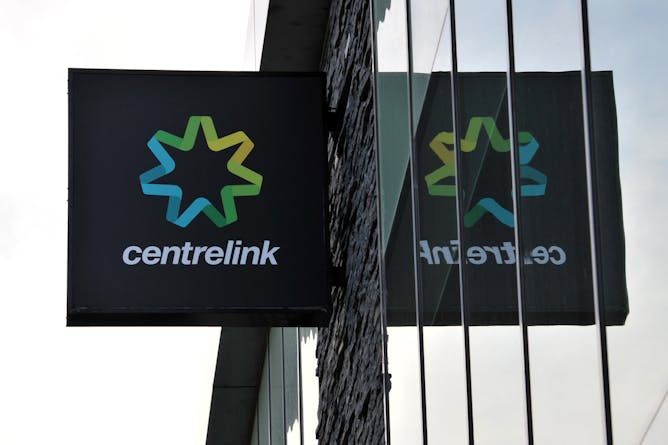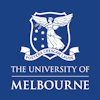| |
|
|
|
|
|
|
| |
|
Editor's note
|
|
In recent weeks we’ve been hearing a lot about Cambridge Analytica and fake news so I’m hoping you will indulge me for just a few moments as I try to balance to doom and gloom with a little encouraging news.
A little over seven years ago a group of Australian editors and journalists launched The Conversation. The idea behind it was unapologetically idealistic. We wanted to fight back against disinformation and spin by working with academics to unlock their deep knowledge and share it with the public. Few people thought it would work. Even the most sunny press coverage took on the ominous tone of Sir Humphrey Applebly praising his minister for being “courageous”. Well, just over seven years later here we are, proof that a little idealism can take you a very long way.
The Conversation is now a global network of editors and academics, with teams based in Canada, Indonesia, the US, the UK, Africa and France. We are working with academic experts to produce high quality, reliable, analytic journalism.
And we are serving a fast-growing audience. In the middle of last year when we had a smidge over five million unique readers coming to our website each month we launched a campaign to almost double our audience to 10 million. In March we hit that ambitious target with 10.6 million readers on site and 35 million through republication.
What’s most encouraging is that we’ve been able to achieve these sorts of numbers while keeping our idealism intact. We don’t sell advertising on our article pages and we are not in the business of infotainment, so we don’t publish articles merely because they might go viral. Instead, we work with academics to publish reliable information that we believe is essential for healthy democracy.
There’s still a long way to to go. The Conversation is too low-profile given the success we have had, and we’d like to change that. We still need more funding to secure our long-term future, but we are working on it. Most importantly though, we are still here, serving our 10 million onsite readers and 35 million through republishers, and sharing the work of academics who have dedicated their lives to the pursuit of knowledge and service of the public good.
|
|
|
Top story
|

The Department of Human Services approach to social security fraud prosecutions has become less punitive in recent years.
Julian Smith/AAP
Scarlet Wilcock, University of Wollongong
Despite a public focus on punitive approaches to welfare fraud, the number of social security fraud prosecutions has fallen in recent years.
|
Politics + Society
|
-
Shireen Hassim, University of the Witwatersrand
Winnie Madikizela-Mandela's political power stemmed from the visceral connection that she was able to make between the lives of the oppressed black people, and her own.
-
Michelle Grattan, University of Canberra
Under the People's Bank proposal homeowners would be able to borrow up to 60% of the value of their property directly from the RBA.
-
Michelle Grattan, University of Canberra
One of the signatories of the Coalition backbench Monash Forum's call for government to build "Hazelwood 2.0", Joyce described his support for the group's manifesto as "like signing a birthday card".
-
Derek Wilding, University of Technology Sydney
A trend of defamation cases going digital has led to a review of defamation law in New South Wales.
|
|
Education
|
-
Ingrid Piller, Macquarie University
Some learning apps promise to have you speaking a new language in two weeks. But truly learning a language requires considerable time, effort and commitment.
|
|
Business + Economy
|
-
Garrick Small, CQUniversity Australia
Co-ownership of real estate through digital platforms can be a risky and potentially costly business.
-
Carly Moulang, Monash University; Jimmy Feng, Monash University; Paul Gerrans, University of Western Australia
If a superannuation fund member is at a workplace where a lot of colleagues make changes to their investment strategy, it becomes significantly more likely that they themselves will make a change.
|
|
Commonwealth Games 2018
|
-
David Rowe, Western Sydney University
Scenes of sand, sea and skyscrapers will add a glitzy veneer to an Old Empire at play.
-
Andy Fuller, University of Melbourne
What does the ongoing involvement of Australia in the Commonwealth Games teach us about our cities and the relationship between sport and politics?
|
|
Arts + Culture
|
-
Benjamin Wilson Mountford, La Trobe University; Stephen Tuffnell, University of Oxford
The discovery of gold in California 170 years ago was a turning point in global history. The gold rushes are not mere historic footnotes – they continue to influence the world in which we live today.
|
|
Cities
|
-
Chris Chesterfield, Monash University
Australian cities are experiencing the third big wave of growth in their history. The response in the past was planning and investment in green infrastructure, and it's time to do the same again.
|
|
Science + Technology
|
-
Mark Finn, Swinburne University of Technology
Electric vehicle racing is slower and quieter than conventional car racing. To make it interesting, organisers are allowing fans to choose by popular vote to give some drivers a power boost.
-
Jacinta den Besten, University of Melbourne
Instead of pulling us to the top or bottom, the force of gravity pulls us to the middle of the Earth.
|
|
Health + Medicine
|
-
Helen Macpherson, Deakin University
Although we can’t change our age or genetic profile, there are fortunately several lifestyle changes we can make that will reduce our dementia risk.
-
Klaus Oliver Schubert, University of Adelaide; Bernhard Baune, University of Adelaide
Researchers are developing gene-based tests to better predict who will respond to different types of medication, and which to avoid.
|
|
Columnists
|
|
|
| |
Featured jobs
|

|
Griffith University — Nathan, Queensland
|

|
RMIT University — Melbourne, Victoria
|

|
University of Western Australia — Perth, Western Australia
|

|
Deakin University — Newtown, Victoria
|
|
|
|
Featured events
|

|
The Shine Dome, Australian Academy of Science, Canberra, Australian Capital Territory, Australia — University of Melbourne
|

|
Lecture Theatre 1040, Level 1, Abercrombie Building (H70), crn Abercrombie Street & Codrington Street, The University of Sydney, New South Wales, 2006, Australia — University of Sydney
|

|
RMIT Activator (Level 2, Bldg 98), 102 Victoria St, Carlton, Melbourne, Victoria, 3000, Australia — Monash University
|

|
Ultimo, Ultimo, New South Wales, 2007, Australia — University of Technology Sydney
|
|
|
|
| |
| |
| |
| |
| |
|
|
|
|
|
|
|
|